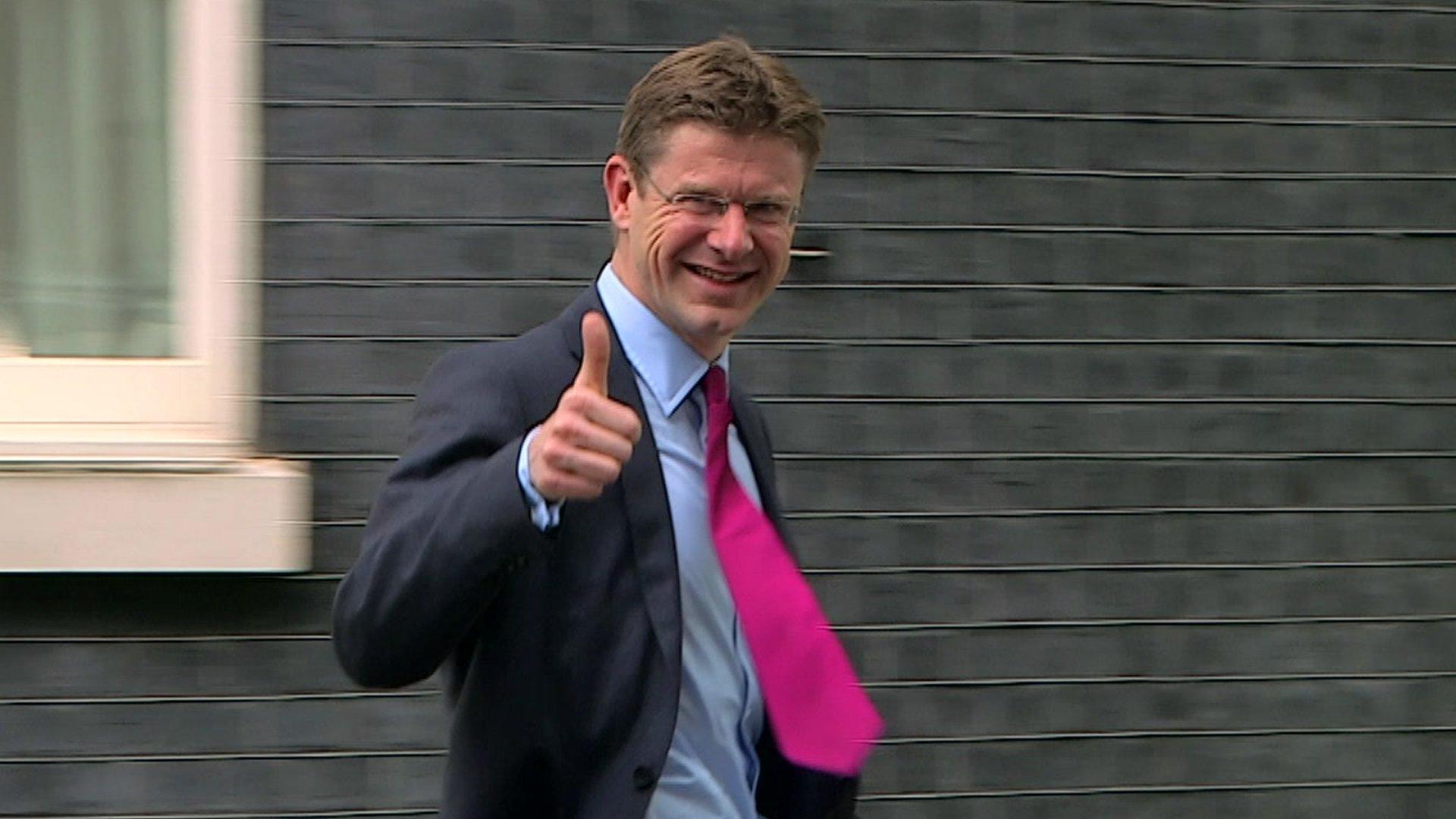Cameron tells cabinet to focus on opportunity and compassion
- Published
David Cameron was greeted with banging on the table as he arrived at the cabinet meeting
David Cameron has told the first all-Tory cabinet meeting for 18 years that they must focus on "bread and butter" ways of improving people's lives.
Addressing his top team for the first time since his victory, he promised a "down-to-earth" Conservative agenda focused on extending opportunity.
He also insisted all changes to public services must be rooted in "true social justice and genuine compassion".
The new government is expected to prioritise laws on work and childcare.
In other news:
David Cameron is completing the reshuffle , externalby announcing a host of junior ministerial appointments. There are jobs for the 2010 intake of MPs including Rory Stewart, Caroline Dinenage, James Wharton and Tracey Crouch.
Chancellor George Osborne says the government has a "clear mandate" for its negotiations with the European Union amid fresh speculation about the timing of a future referendum on the UK's membership
Chuka Umunna says he is a candidate for the Labour leadership
A row has erupted between UKIP's only MP Douglas Carswell and party officials after he rejects £650,000 in public money
A cabinet minister says newspaper reports that the government is set to "go to war" with the BBC are "a bit over-excited"
Lib Dem MP Norman Lamb says he wants to rebuild trust in his party as he confirms he will run for the leadership
Follow all the day's twists, turns and developments with Politics Live
The Conservatives won a 12-seat majority in the House of Commons in Thursday's election, taking 331 of the 650 seats.
At the start of the first cabinet meeting since the election, Mr Cameron said the new government would be different from its predecessor, saying it would not have to "trade away" policies and would therefore be more accountable.
Brandishing a copy of the Conservative manifesto, he said the government had a mandate to deliver all of it.
He urged his ministers to focus on "down-to-earth" ways of "giving everyone in our country the chance to live a good and fulfilled life and make the most of their talents".
New Business Secretary Sajid Javid on his plans for full employment and trade union reform
His party, he said, will offer "the chance to get on, with the dignity of a job, the pride of a pay cheque, a home of their own and the security and peace of mind that comes from being able to support a family".
He said it would also support those who cannot work, repeating a phrase he delivered after the 2010 election that "those that can should, and those that can't, we always help".

Cabinet changes
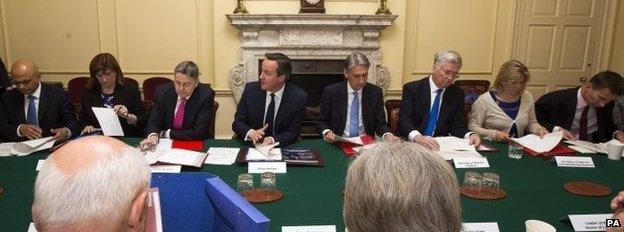
Amber Rudd is Energy and Climate Change Secretary
Anna Soubry and Priti Patel will attend cabinet as small business and employment ministers
Greg Hands is Chief Secretary to the Treasury
Veteran Tory MP John Whittingdale is Secretary of State for Culture, Media and Sport
Sajid Javid is Business Secretary
Robert Halfon is deputy chairman of the Conservative Party and Minister Without Portfolio
Grant Shapps has moved from party chairman to International Development Minister
Boris Johnson is not a minister but will attend separate Tory "political cabinet" meetings

The Conservatives say measures on work and childcare will be at the heart of their first legislative programme, due to be announced on 27 May, and will be "fast-tracked" through Parliament.
During the election campaign, Mr Cameron said the UK should aspire to "full employment", which he defined as Britain having the highest percentage of people in work of any developed nation.
The employment bill will push for two million jobs and three million apprenticeships to be created over the next five years.
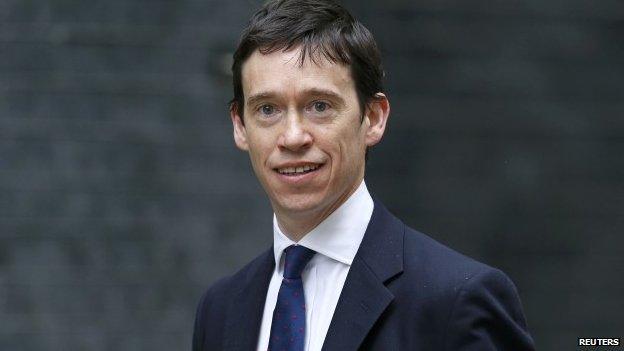
Rory Stewart is among the latest group of ministers to be appointed
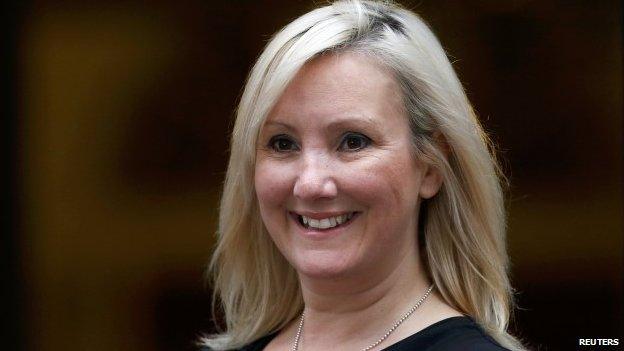
There is also a job at the Ministry of Justice for Caroline Dinenage
It will also lower the annual household welfare cap - the maximum amount that any household can receive in benefits - from £26,000 to £23,000.
Downing Street said this would "ensure people are always better off in work and there is an end to the something-for-nothing culture".
A second bill will focus on childcare.
Currently, all three and four-year olds in England are entitled to 570 hours of free early education or childcare a year, which works out as 15 hours each week for 38 weeks of the year.
During the election campaign, the Conservatives promised 30 hours from 2017.
The PM will also promise to introduce tax-free childcare for every child.
Strike ballots
Business Secretary Sajid Javid said he would "look afresh" at aspects of employment law and regulations so that everything possible was being done to encourage free enterprise.
The government, he said, would also press ahead with changes to the rules on trade union strike ballots, so industrial action in essential public services would only be lawful if 40% of employees entitled to take part in a ballot actually voted.
"We have not hidden away from the changes we want to make," he told BBC Radio 4's Today, adding that he also wanted to lift the ban on agency staff being used during walkouts. "I think it is essential we make these changes."
On Europe, Mr Javid said a referendum on the UK's membership of the EU would definitely be held before the end of 2017 and the government would "provide more information over the coming weeks and months".
Media reports have suggested the referendum could be brought forward to 2016 if the legislation needed to pave the way for the vote is passes quickly through Parliament and if negotiations with other EU leaders conclude earlier than expected.
Mr Cameron is putting the finishing touches to his government, by filling the ranks of junior ministerial positions. Among those to be given jobs include Ben Gummer, Damian Hinds and Justine Tomlinson, the latter becoming minister for disabled people.
Rory Stewart, the former diplomat who was chair of the Commons defence select committee, is to become a junior minister at the Department for the Environment, Food and Rural Affairs.
- Published11 May 2015
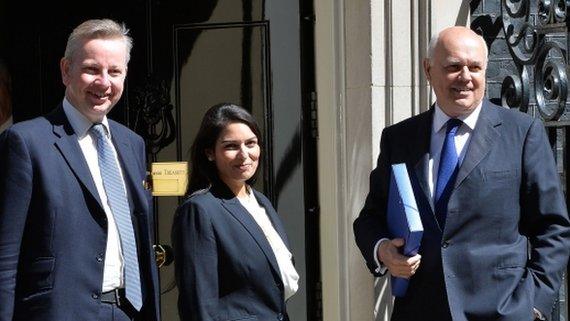
- Published19 March 2016
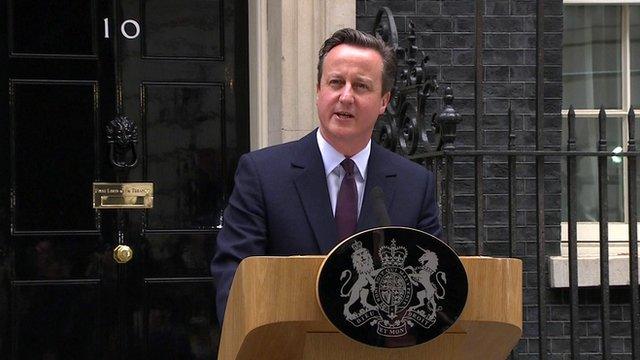
- Published12 May 2015
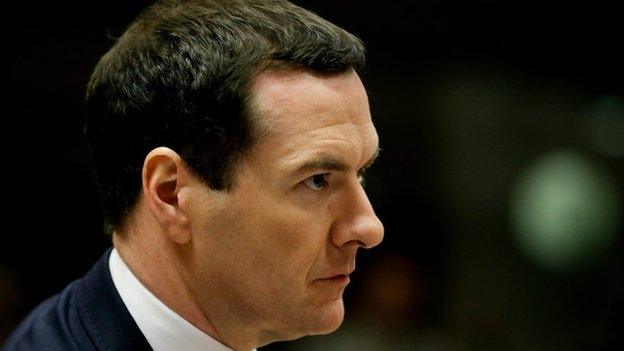
- Published11 May 2015
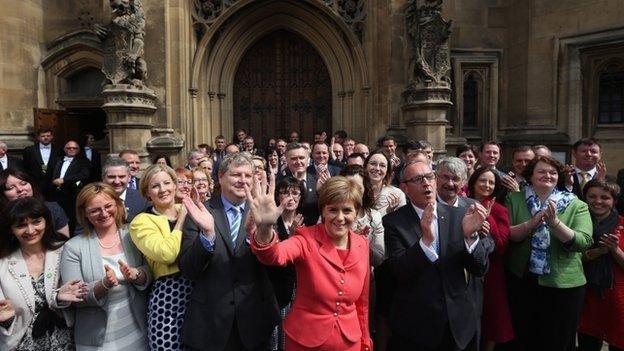
- Published11 May 2015
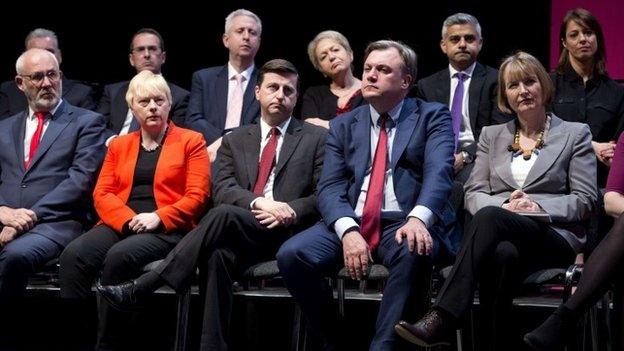
- Published11 May 2015
- Published11 May 2015
